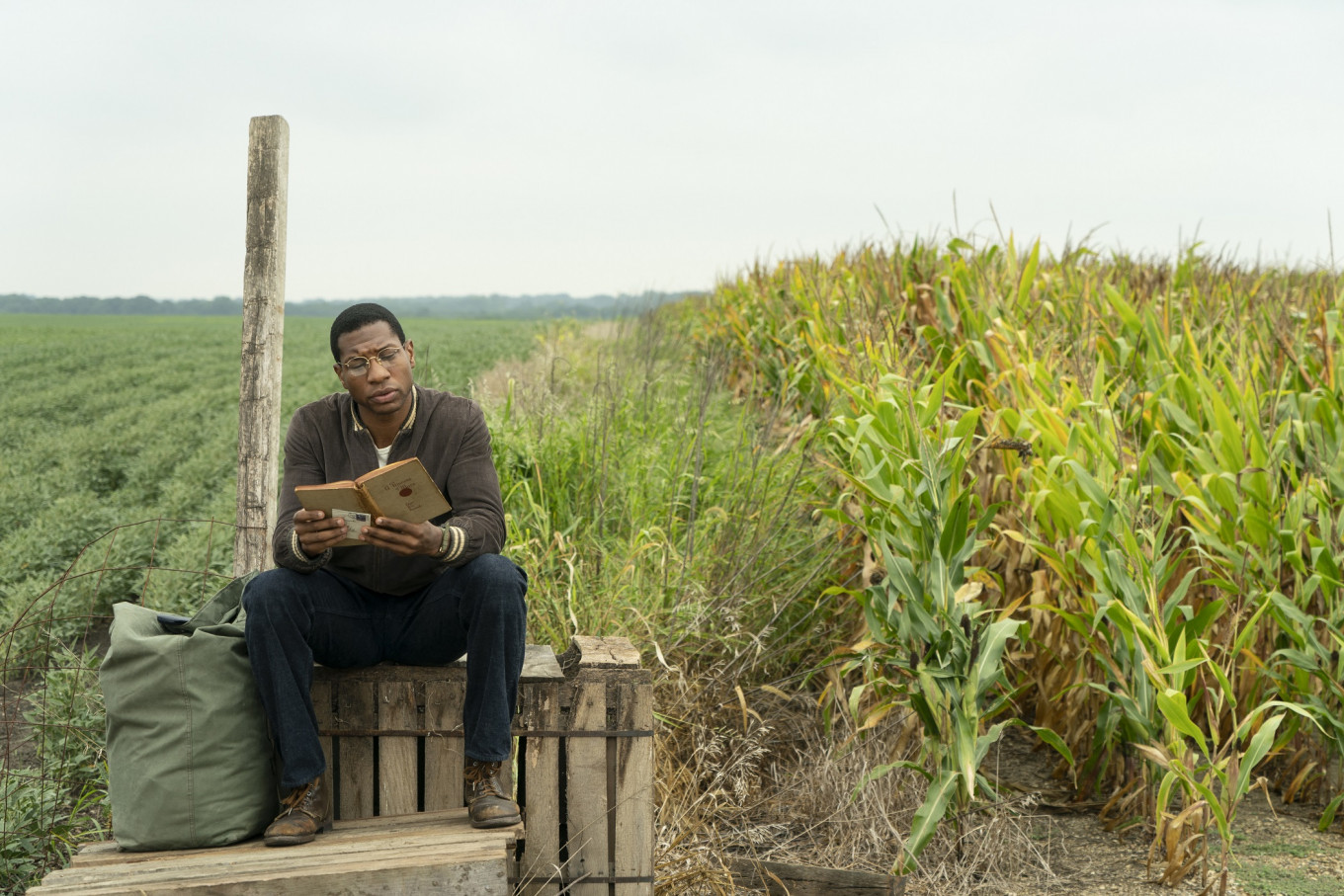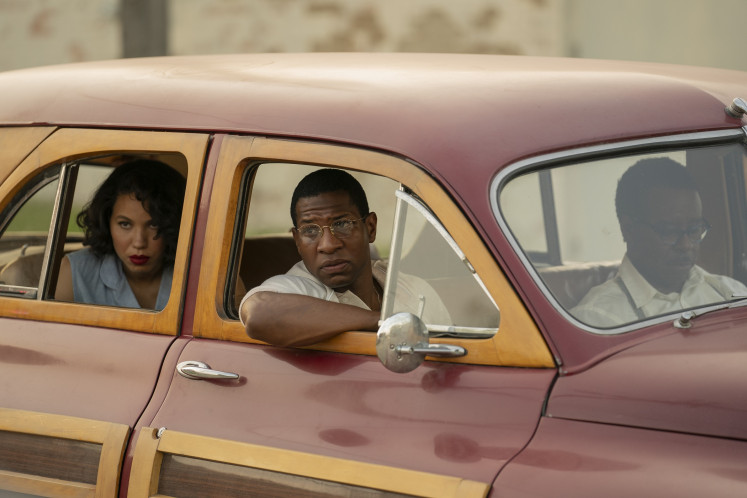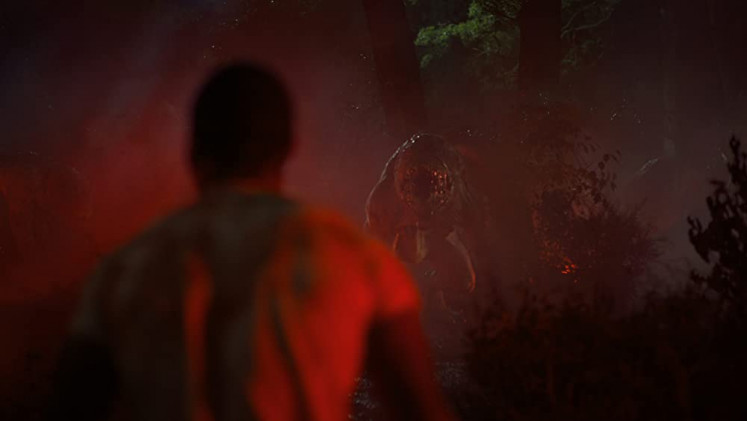Popular Reads
Top Results
Can't find what you're looking for?
View all search resultsPopular Reads
Top Results
Can't find what you're looking for?
View all search resultsJonathan Majors balances race, family and otherworldly horror in ‘Lovecraft Country’
Change text size
Gift Premium Articles
to Anyone
A
ctor Jonathan Majors’ latest role sees him straddling issues of race, identity and family while also being menaced by horrors far out of this world.
Take a look at Majors’ filmography and it shows that his repertoire of works is as interesting as they come.
There is the revisionist Western Hostiles, the semi-autobiographical drama The Last Black Man in San Fransisco and the alien-infused science-fiction action Captive State.
Now though, Majors is up against two things one would rarely encounter together: racism and monsters straight out of an H.P. Lovecraft book.
Based on the novel of the same name by Matt Ruff, Lovecraft Country – which premiered on HBO GO on August 17 – casts Majors as Atticus Freeman, a Korean War veteran and avid science fiction fan returning home to Jim Crow-era United States in search of his missing father Montrose (Michael K. Williams).
Along with his uncle George (Courtney B. Vance) and childhood-friend-turned-love-interest Letitia (Jurnee Smollett), the trio journeys across a segregated America, where racism and shape-shifting monsters are things that go bump in the night.
A nation divided: Letitia (Jurnee Smollett, left) accompanies Atticus on journeys across a segregated America. (HBO/-)Speaking via web conference, Majors spoke of the black experience in America as fraught with dangers, from when the first African slave set their foot on American soil in 1619 up until the present day.
“So, it [Lovecraft Country] is extremely relevant now – I think it was extremely relevant when we were making it. But the beauty of it coming out now is that people are already looking in that direction – people are already questioning and wanting information and wanting to educate themselves on that, and to do so not only in a literal way, but also in a spiritual and emotional way,” he said.
The combination of otherworldly monsters and white supremacy certainly makes for an interesting script, especially given the state of American society with the rise of the Black Lives Matters (BLM) movement and increased scrutiny on racial dynamics.
Suspense in the air: 'Lovecraft Country' features otherworldly monsters, which symbolize white supremacy. (HBO/-)One scene in the first episode likely stands out for many Americans; when the racist sheriff and two other officers force the main trio to the ground and accuse them of a crime. At this point, monsters start attacking the officers, and the sheriff is also transformed into one of the otherworldly beasts.
Thus, white supremacy is also portrayed as monstrous, a rather pointed subversion given Lovecraft’s own views on black people as beastly.
Highlighting the death – or rather assassination, as Majors put it – of George Floyd that sparked worldwide outrage and protests, he noted the positive feeling of participating in the educational process, but at the same time stressing that they are also here to entertain.
At the same time, what drew Majors to the story is that Lovecraft Country is a family story about a young man, his family, the girl he fell in love with, and their adventure to claim their legacy.
“For me, it was a family drama, and the beautiful thing about this family is in this case, our protagonist are African-Americans and that’s something we don’t really get to see all the time,”
“I’ve said this before and I really believe it, here we have the BLM movement, and I find that curious because in our country, it’s not quite the melting pot we purport it to be,” Majors explained, citing the existence of homogenized spaces where black lives are virtually unknown.
“They don’t really know, in some cases. They know the idea of black people, but in my opinion, we haven’t been portrayed enough in cinema, entertainment. We haven’t been portrayed enough in literature, in many ways, to give a full picture of what a black life really is.”
According to Majors, the show runs on two ideas: legacy and bigotry. The latter, he continues, is completely earthbound, whereas the former transcends time and space.
What he wishes the audience could take from the experience then, is the transcendence of the day-to-day racism and prejudice experienced by black Americans.
“When you really think about the future, when you really think of one’s legacy, you become a bit more gentle. There’s very little gentility in our show, but you become a bit more gentle, a bit more cognizant of the people around you,” he said.
For international viewers, who might not be familiar with the nuances of American racial relations, Majors suggested that the common thread tying them together is the genre, and the concept of family.
“The dope part is, we all come from families – those families are rough, sometimes they are easy, but we all come from families. And for me, that’s the core of the story.
“You have a core group of people who you move to the world with, and the way I view my father, and the way you view your father and mother is universal. The struggle to move a family forward is universal, and at the core of Lovecraft, that’s what we’re talking about and so, I think every race, creed and country can grab onto that and I hope they do.”













